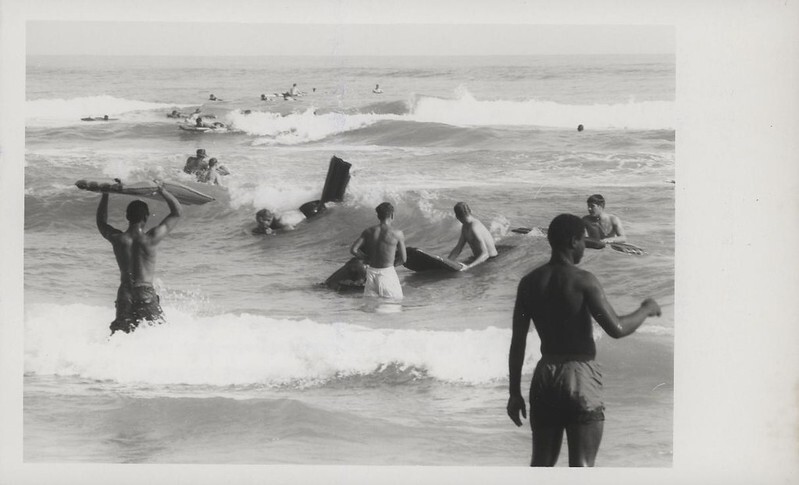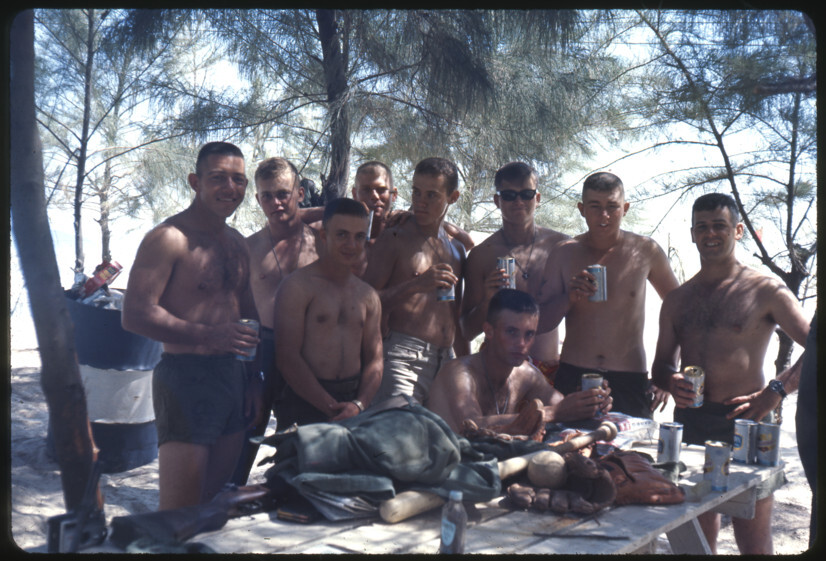"There Were Times That We Laughed"
In addition to describing bravery and commitment to their difficult job, a strong brotherhood between them and their Marines, and the importance of reunions, some Corpsmen narratives include stories of positive experiences from Vietnam. These young men got into trouble, drank beer, and had fun. It is important to note that not all Corpsmen included these stories in their narratives. "Doc" Cahill's interview is an example of this. When returning to the rear after almost eight months in the bush, Cahill spoke of limited positive aspects, emphasizing his assignment to "burn shitters", effectively serving as waste management staff. This is to say, not all Corpsmen included positive aspects of their Vietnam experiences in this way. For those who did include such stories, it is important to qualify why. These stories represent an important ability of Corpsmen to escape from their harsh combat role.
Despite "burning shitters" in the rear like "Doc" Cahill, Jack Cassidy included limited stories of positive experiences. Cassidy attributes his positive experiences to something known as euphoric recall. Jack defined the term in his interview: “you don’t focus on the bad and you don’t remember. I never do.” Jack shared plenty of stories and shenanigans: “there were times that we laughed, that we got drunk, that we had fun. That we actually laughed at each other and had a good time. I end up remembering those good times and I often don’t remember the bad shit as much.” Jack in particular recounted an eventful R and R trip to Singapore that involved eating dinner with a local family, traveling to an Opium den and paying a cab driver to take him around the city for an entire night, and running into a forgiving Military Police Officer when he and a buddy tried to extend their trip. Cassidy spent a few extra days away from his unit per his own volition, and upon returning, mentioned that the Marines were so in need of Corpsmen at the time that he faced no punishment from the stunt. During Jack’s interview, he made sure to include the positive interactions and things he enjoyed, demonstrating just how important it was for Corpsmen to be able to escape from their harsh combat roles.
Corpsman Robert Slingluff also spoke of fun times in the rear during his narrative. When asked about whether or not he ever had problems obtaining medical supplies, Rob responded jovially: “No, not the medical supplies. I had problems once with the beer.” At his Battalion Aid Station on ‘Hill 37,” the Corpsman spoke of possession of Playboy magazines, a bar, and ice. With the permission and help of the Battalion Doctor, Slingluff described how he would bring 150 cases of beer per day to the Battalion Aid Station near Da Nang, of which he towed behind an ambulance in a trailer. Through selling beer at “20 cents a can,” Slingluff made enough money to pay for one year of his college education. The Military Police tracked him down and took away his ambulance and beer hauling trailer, but he faced no real punishment for his actions. Slingluff also included stories about his time on R and R. Rather than going to his assigned destination of Hawaii, Slingluff booked himself a round trip to and from his home town of Baltimore, spent a few days visiting with family, and returned to his unit without a hitch. The inclusion of these stories represent how positive experiences allowed for a mental escape from the difficult Corpsman role.
Corpsman Ordonez also made light of more relaxed conditions in the rear in his oral history interview. After getting out of the bush, as Corpsmen would do after six months, the pace of war eased a little bit. Ordonez spoke of seeing movies, drinking with his buddies, and being thrown out of Air Force posts with his friends for roughhousing and having a good time. Despite seeing horrors in the field, Ordonez remarked: “We’d just have a ball.”
Corpsmen underwent a significant amount of physical and emotional stress out in the bush. Though not all include these stories, some Corpsmen include limited positive experiences that demonstrated their ability to escape from the difficult Corpsman role while in Vietnam. When crafting their narratives, the narrators made active decisions to include these stories, demonstrating just how important these moments were for the men.

